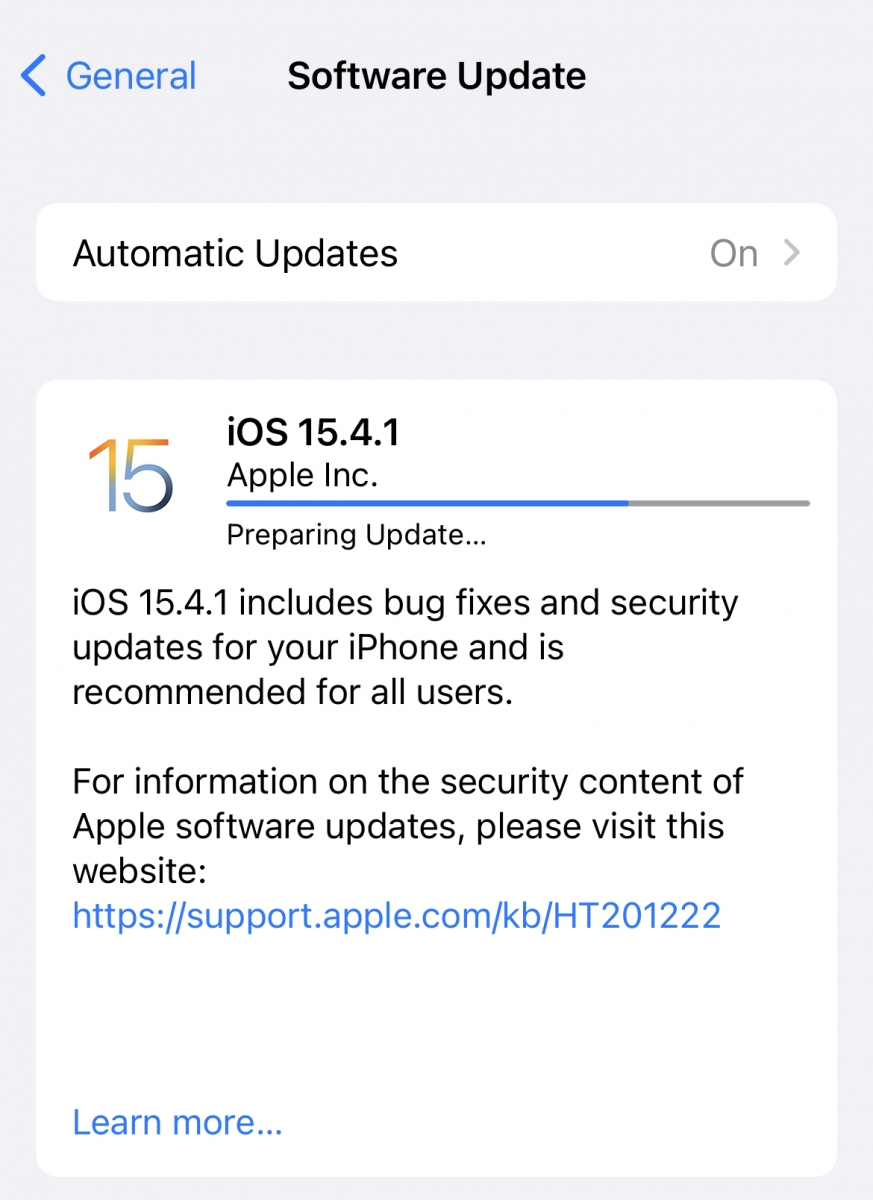Apple’s security response team on Thursday released emergency patches to cover a pair of “actively exploited” vulnerabilities affecting macOS, iOS and iPadOS devices.
Apple confirmed the two security defects — CVE-2022-22675 and CVE-2022-22674 — in all its major operating systems and warned that remote code execution attacks may already be underway.
One of the two vulnerabilities, described as an out-of-bounds memory corruption issue in AppleAVD, affects both iOS and macOS devices.
 “An application may be able to execute arbitrary code with kernel privileges. Apple is aware of a report that this issue may have been actively exploited,” the Cupertino, California company said in a barebones advisory.
“An application may be able to execute arbitrary code with kernel privileges. Apple is aware of a report that this issue may have been actively exploited,” the Cupertino, California company said in a barebones advisory.
[ READ: New Modem Wiper Malware May be Connected to Viasat Hack ]
Apple released iOS 15.4.1 and iPadOS 15.4.1 and urged users to apply the updates to reduce exposure to risk.
The company separately released macOS Monterey 12.3.1 with fixes for the AppleAVD bug and a second flaw in the Intel Graphics Driver, warning that a successful attacker can read kernel memory.
“An out-of-bounds read issue may lead to the disclosure of kernel memory and was addressed with improved input validation. Apple is aware of a report that this issue may have been actively exploited,” the company said.
As is customary, the company did not provide any details or indicators or compromise to help its users detect signs of malicious activity.
According to SecurityWeek tracking data, there have been at least 13 documented zero-day attacks so far this year.
Related: North Korea Gov Hackers Caught Sharing Chrome Zero-Day
Related: The Chaos (and Cost) of the Lapsus$ Hacking Carnage
Related: Apple Patch Day: Gaping Security Holes in iOS, macOS, iPadOS













